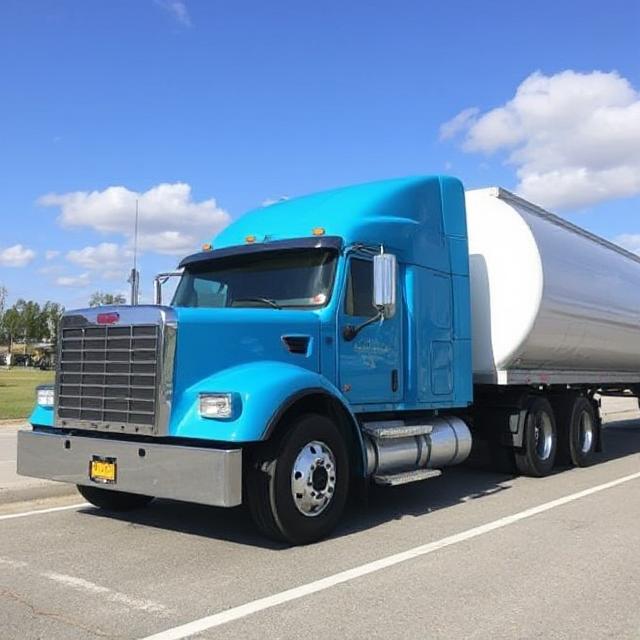Are CNG Trucks Worth It? A Fleet Owner’s Perspective on Cost & Sustainability
Discover if CNG trucks are worth the investment from a fleet owner’s point of view. Explore real-world benefits, challenges, and long-term returns of switching to compressed natural gas.
Are CNG Trucks Worth It? The Fleet Owner’s Perspective
As fuel costs rise and sustainability regulations tighten, many fleet owners are evaluating alternative fuel options. Among them, Compressed Natural Gas (CNG) trucks are gaining attention. But the big question remains: Are CNG trucks really worth it?
In this blog, we explore the real-world pros, cons, and considerations of CNG trucks—from the viewpoint of the people who rely on them the most: fleet owners.
🚚 What Are CNG Trucks?
CNG trucks run on compressed natural gas instead of diesel or gasoline. They’re known for being:
- More environmentally friendly
- Cheaper to fuel
- Quieter to operate
But they also come with upfront costs and infrastructure needs. So what’s the trade-off?
💵 Financial Perspective: Are They Cost-Effective?
✅ Fuel Cost Savings
Fleet owners consistently report that CNG fuel costs are 25%–40% lower than diesel on average.
“Over time, the savings really add up—especially if you’re operating in high-mileage, regional routes.”
— Logistics Director, Midwestern Freight Co.
⚙️ Maintenance and Service
CNG engines burn cleaner, which means:
- Less wear on parts
- Fewer oil changes
- Reduced emissions system repairs
This can translate to lower maintenance costs and more uptime.
♻️ Environmental Impact: A Clear Win
🌍 Lower Emissions
CNG trucks produce:
- Up to 20% less CO₂
- Up to 90% less NOx
- Near-zero particulate matter
This makes them ideal for eco-conscious brands, government contracts, and areas with strict emissions standards.
📣 Public Image
More and more companies see environmental responsibility as part of their brand. Fleets using CNG often promote it as a competitive advantage in their marketing and ESG reporting.
🧾 Upfront Investment: What to Expect
The initial cost of a CNG truck can be $10,000–$20,000 more than a comparable diesel model.
But:
- Federal and state incentives can reduce that gap
- Total cost of ownership (TCO) tends to favor CNG over 3–5 years
- Payback periods typically range from 24–36 months, depending on usage
🛠️ Infrastructure Considerations
🔌 Refueling Access
- On-site CNG stations are ideal for larger fleets
- Public refueling networks are expanding, especially in urban areas
- Planning routes around stations is still a must for long-haul operations
🏭 Facility Upgrades
Some fleets need to upgrade their garages for CNG vehicle compliance (ventilation, fire codes), adding to startup costs.
📊 CNG vs Diesel: A Fleet Owner’s Comparison
| Factor | CNG Trucks | Diesel Trucks |
|---|---|---|
| Fuel Cost | Lower | Higher |
| Emissions | Significantly lower | Higher |
| Maintenance | Lower due to cleaner burn | Higher over time |
| Upfront Cost | Higher | Lower |
| Infrastructure | Growing but limited | Widely available |
| Long-Term ROI | Strong with volume/mileage | Moderate |
🧠 What Fleet Owners Are Saying
“CNG makes financial and environmental sense for our metro routes. We’re not turning back.”
— Operations Manager, Urban Delivery Fleet
“The infrastructure was a challenge at first, but incentives helped a lot. It’s worth the long game.”
— Fleet Owner, California Logistics
✅ Final Verdict: Are CNG Trucks Worth It?
Yes—if you’re strategic.
CNG trucks make strong financial and environmental sense for fleets with high mileage, predictable routes, and access to refueling.
While there are hurdles (cost, planning, infrastructure), many fleet owners find that the ROI and sustainability advantages make CNG a smart long-term move.
Target Keywords:
- Are CNG trucks worth it
- fleet owner CNG experience
- compressed natural gas trucks
- CNG truck ROI
- alternative fuel fleet
- clean fleet technology
- diesel vs CNG comparison
- fleet sustainability
- CNG vehicle pros and cons
- low-emission fleet solutions

